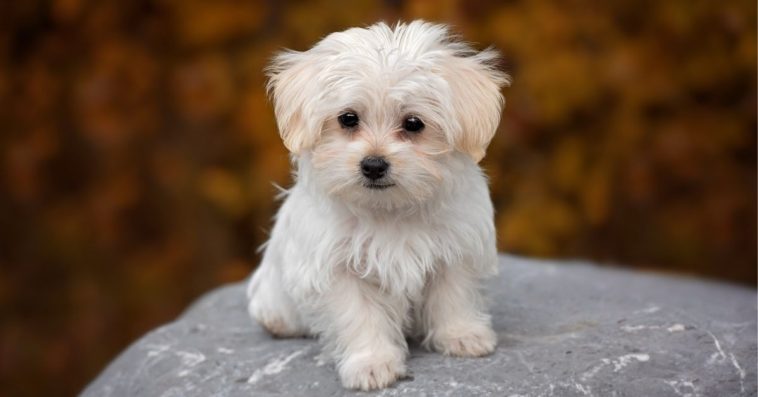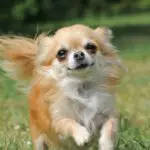Puppies are adorable, and they know it. So when they want to get your attention, they can be pretty persistent about it. But sometimes even the most enthusiastic pups will ignore you for no apparent reason. This is the time you may wonder: Why Is My Puppy Ignoring Me?
It’s not that they don’t love you or want to play with you–it’s just a phase of development called stranger anxiety where puppies don’t trust people who aren’t their family members yet. This is normal behavior for puppies under six months old. It should disappear on its own in a few weeks or months as long as we respect them by keeping our distance and giving them space when we see them acting this way.
Why Is My Puppy Ignoring Me? Top 6 Reasons
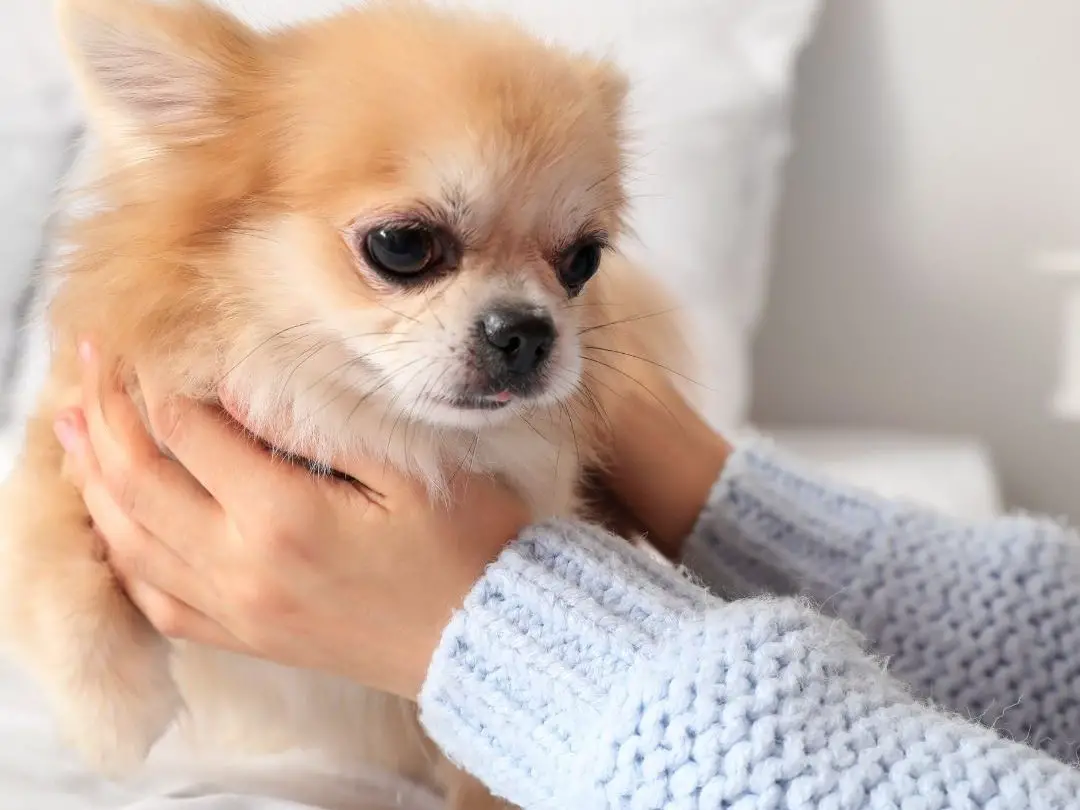
There are a few reasons why puppies may become afraid of you and your family members. It could be a case of mistaken identity, but more likely it’s caused by any combination of the following factors:
1. Unfamiliar With Its Environment
Your puppy has just been introduced to a new environment-your home, where it feels safe. But this is also the first time your puppy has been away from the safety of its mother and siblings. Because this is all so new to your puppy, everything you do is strange and unfamiliar to it.
2. Over-Excitement
Because your puppy is in an unfamiliar environment without its mother and family around, it’s feeling a bit more fearful than it would have if it were still at home. In addition to fear, your puppy may be feeling a little insecure about what’s going on. Therefore, it will act out a little towards you as well.
3. Stranger Anxiety
Your puppy probably has a heightened sense of fear and is a little anxious about strangers. Your puppy may not be afraid, but act nervous because it does not know how to act around you.
4. Lack Of Human Contact
Some puppies have had very little contact with people other than their mothers and siblings up until this point in time. Puppies raised in large litters, for example, may have had little human contact before you got them. This may make your puppy nervous to interact with humans other than its mother and family.
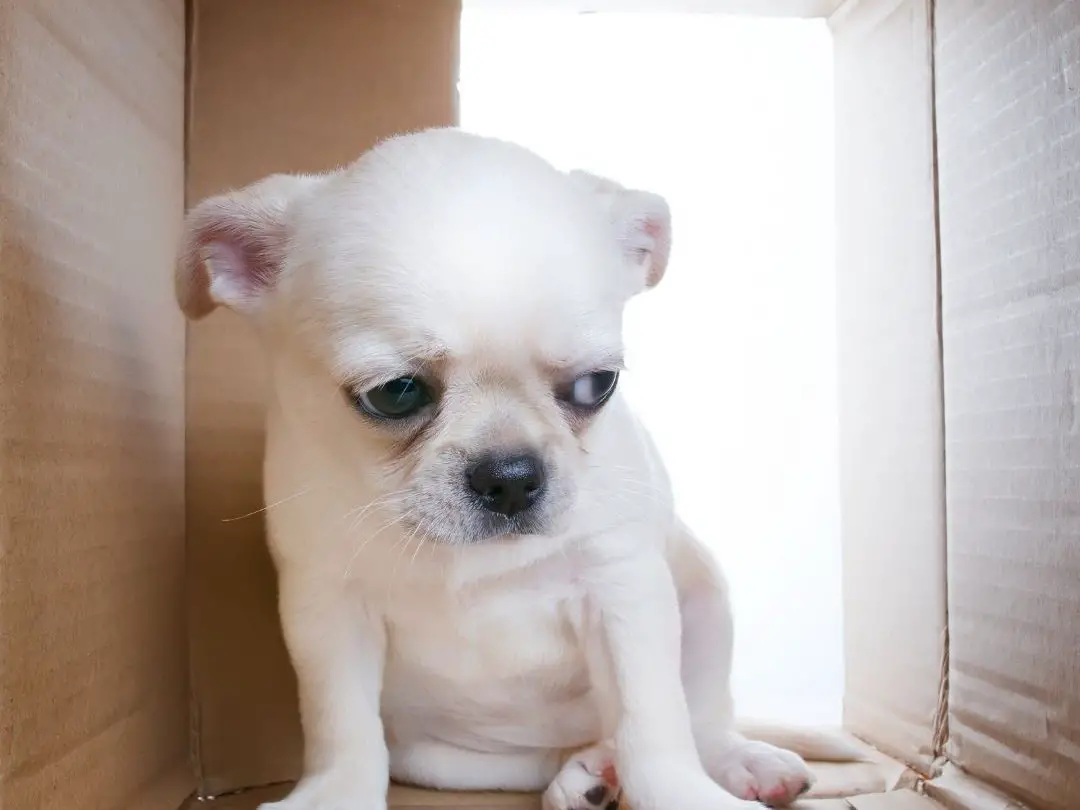
5. Lack Of Proper Socialization
Some puppies have not had a chance to socialize with people outside of their litter or immediate family before you got them. As a result, they may be nervous about interacting with people they don’t know. They act out in fear or anxiety to protect themselves from perceived threats.
6. Undesired Attention
There’s a difference between being friendly and wanting attention. Your puppy may feel overwhelmed by the attention you’re giving it, which can quickly cause fear to arise. The same goes for friends or family members who give your puppy too much attention too soon after meeting them.
Also Read: Do Dogs Miss Their Mom?
Is It Normal For Puppies To Ignore?
Yes, it’s normal for puppies to ignore humans that they are not familiar with. Most puppies will start ignoring strangers by the time they are 4-6 weeks old. It is their way of protecting themselves from people who may be bad or unsafe. Brushing them on a regular basis and playing with toys can help reduce this behavior.
What Should I Do If My Puppy Ignores Me?
If your puppy ignores you, it’s best to avoid or ignore the behavior. Don’t try too hard to get your puppy’s attention and don’t bother him when he seems nervous around you.
Instead of hanging out with your puppy, find something else that helps keeps you calm while letting your puppy stay in its own space. Avoid the temptation to pet, talk sweetly to, or cuddle with your puppy if he pulls back from you. Show him that being shy and ignoring you is completely okay by showing him that it’s okay to be calm when humans are around.
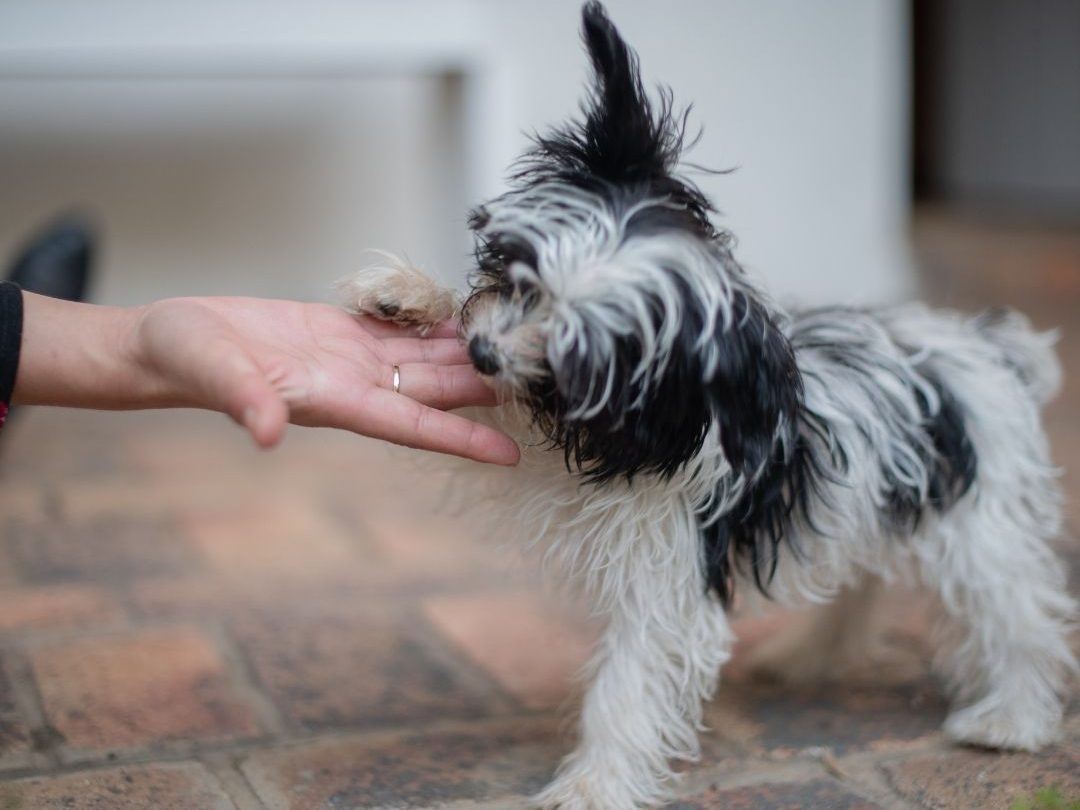
Besides being tolerant of your puppy’s shyness towards you, be sure to show him that you’re safe and trustworthy. This is so it won’t develop a negative association with humans. Avoid eye contact when your puppy is nervous around you to avoid being seen as a threat or predator. Gently pet your puppy’s back instead of his head to avoid pushing his buttons too hard. Keep your interactions brief but pleasant when you do see him.
Having your puppy sit before petting him will also help build a positive association with humans. Teaching your puppy to sit on command is a great way to keep him calm and make interactions with you easier for both of you.
Also Read: Can Dogs Sense Bad People?
How Do You Get Your Puppy To Stop Ignoring You?
1. Make Interactions Fun & Exciting
The best way to get your puppy to stop ignoring you is to show him that humans are not just benign and helpful but also fun. Make interactions with people, including yourself, a source of joy for your puppy. This way, he will like to spend time with you instead of hiding or avoiding you. Instead of following the same routine every day, try doing something new and exciting with your puppy every time you have free time so he doesn’t get bored and starts ignoring you.
Start in a low-risk environment like the living room or kitchen where your puppy is less likely to be overwhelmed by new sights, smells, and sounds. Show your puppy that being near humans is fun by pairing treats with human interaction like petting, talking, and playing.
If your puppy ignores you outside the house, start by practicing in an enclosed space like a bathroom or laundry room. You can also try starting with a moving target. For example, use a toy on wheels that can keep up with you if you’re running short on time. If your puppy is ignoring you in more open spaces, try a leash and harness. It will make him feel more secure while letting you keep better control over his movements.
2. Desensitize Your Puppy
If your puppy is really nervous, you may need to do some desensitizing work – slowly getting your puppy used to the very sight of humans so he doesn’t view them as threats. This may mean hanging out with him in a puppy-proofed room that he’s familiar with. Then, give him some treats for staying near you. Go back to this room often, even when he doesn’t seem interested, so he can make a positive association with humans.
Once your puppy is comfortable being around you at home, start taking him out into the rest of the house on his leash and harness. Make sure to stay in his line of sight. This will help him not to get overwhelmed or nervous, but if he tries to run away from you try not to chase him. This will give him the impression that you’re not worth paying attention to at all.
3. Use A Whip-Snap Collar or Harness
If your puppy is really scared while walking on the leash, use a whip-snap collar or harness. These collars and harnesses give you better control over your puppy’s movements, which is especially helpful if he tries to run away from you. If you’re using a whip-snap collar, make sure it’s worn loosely so it doesn’t hurt your puppy when it gets caught on things along the way.
4. Bond With Your Puppy
Gradually teach your puppy that being near you is fun by making sure he always has a good experience when he’s with you. Toss treats or toys in different directions so he can chase after them while still remaining close to you. The more time your puppy spends around humans without getting overwhelmed, the less likely it is that he’ll start ignoring them.
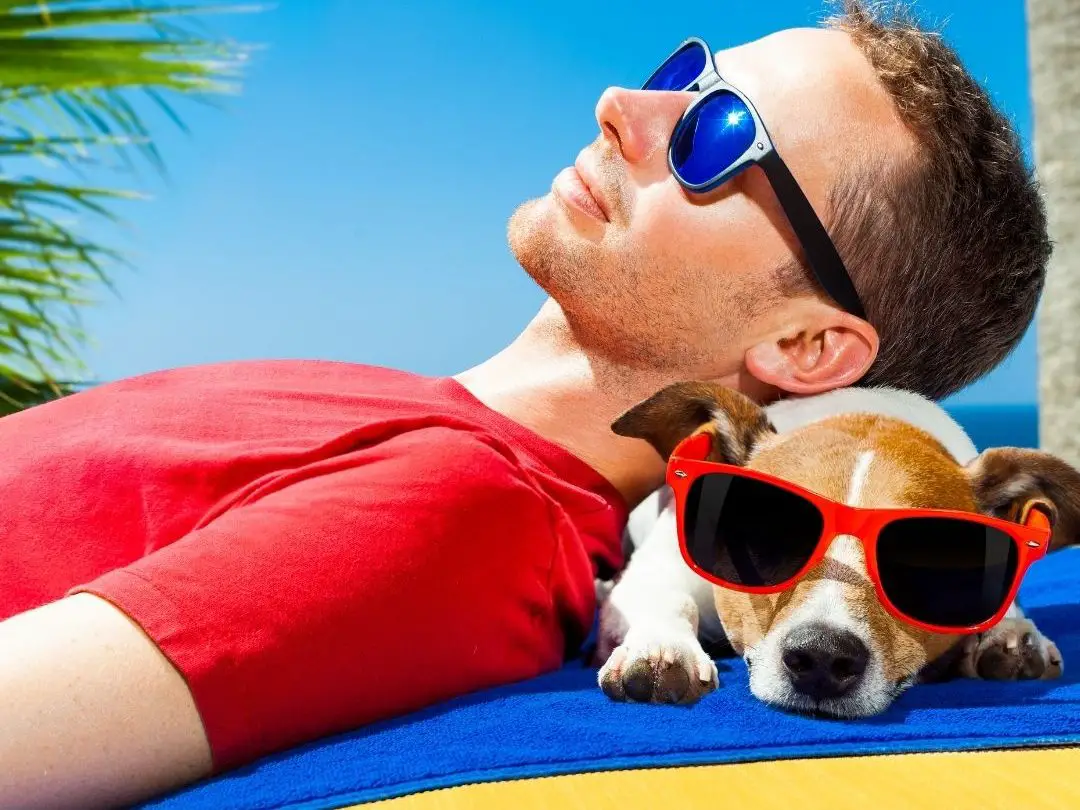
Does My Puppy Have Separation Anxiety?
It’s normal for your puppy to get nervous when he’s left alone, especially in a new or unfamiliar place. He may take some time to adjust and learn that you won’t disappear forever every time you leave him alone. This can be even more apparent if your puppy was the only dog in his life before he came to live with you. However, if you leave him alone and he does any of the following things, it’s worth asking your veterinarian or trainer about separation anxiety:
- Pacing, whining, panting, and/or destructing the house when you’re gone.
- Biting at the door, trying to escape from accidents and/or relieving himself in the house.
- Growling or snarling at people who come to visit when you’re not home.
- Destructing toys while you’re around so that he can’t be left alone with them for too long.
If your puppy is doing any of these things, it will be important to help him feel more comfortable being alone so he doesn’t become fearful and anxious.
This could mean providing space for your puppy to have quiet time when you leave the house, doing desensitization work where you slowly teach your pup that being alone is a safe thing, spending one-on-one time with him outside of his house, or working with a trainer to make sure he isn’t getting overwhelmed.
Is My Puppy Playing When He’s Ignoring Me?
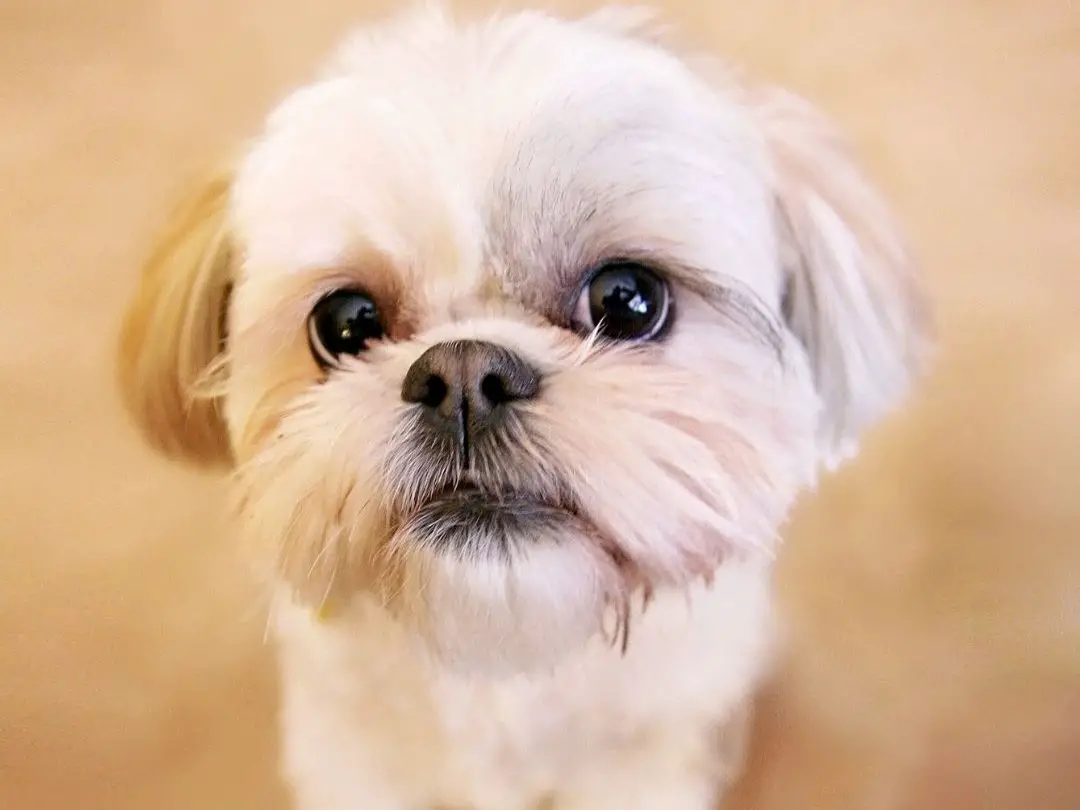
It can be hard to tell if your puppy is trying to play or is completely ignoring you.
With large breeds especially, puppies tend to be very social and enjoy the company of people as much as they do other dogs. If your puppy doesn’t seem to be doing anything and is just hanging out with you, he’s probably content.
However, if he starts getting excited and runs away from you when you try to greet him, looks like he’s acting innocent with his tail wagging but then snarls or growls at you when you get closer, or his body language seems relaxed but he’s panting and trying to keep himself from wagging his tail, there’s a good chance that he’s not very comfortable.
He may still need some work on learning the difference between being around people he knows well versus those he doesn’t know so well yet.
To help him learn this, try bringing him to more social environments so he’s not being such a stranger around people but make sure you do it gradually. The next time your friend visits, have your friend wait outside for 5–10 minutes before you let her in and keep the visit short until he gets used to new people coming over.
When Will My Puppy Stop Ignoring Me?
Some puppies will eventually stop ignoring their owners, but others may remain aloof or be indifferent to you even as they get older. This is especially true for dogs with strong herding or working instincts that are bred to follow a leader without question.
Pups like this aren’t necessarily trying to ignore their owners and can be difficult to live with when they’re ignoring you or a child. However, if your puppy seems to be seeking attention and doesn’t get much positive reinforcement from you for doing so, he may have turned to negative behavior as an attempt to get your attention.
In this case, it will be important to teach him that getting your attention in a more positive way will work better.
If your puppy has ignored you for a long time or continues to ignore you as he grows up, it will be important to start training with him from the beginning and providing enough attention so that he knows who’s in charge. This way, when you do take charge, he’ll be more willing to listen because he trusts you and is used to being obedient.
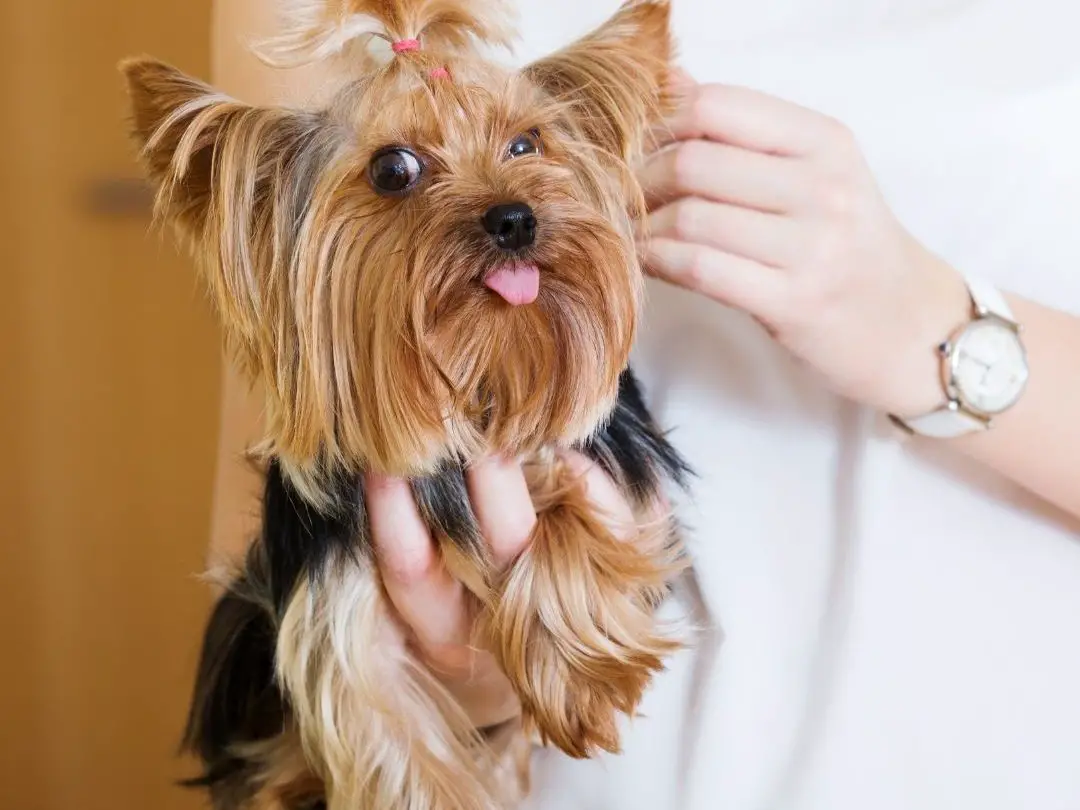
Conclusion: Why Is My Puppy Ignoring Me?
It can be frustrating when your puppy ignores you and it’s important to remember that he may just want something from you. If you feel like asking, “Why Is My Puppy Ignoring Me?“, chances are your pup isn’t ignoring you but is instead trying to get your attention or needs something from you.
If your puppy has ever ignored you, what was the reason? Did you notice any specific behaviors in your puppy that indicated that he was trying to get attention from you? Do you have any specific tips for getting a puppy to stop ignoring its owner?
